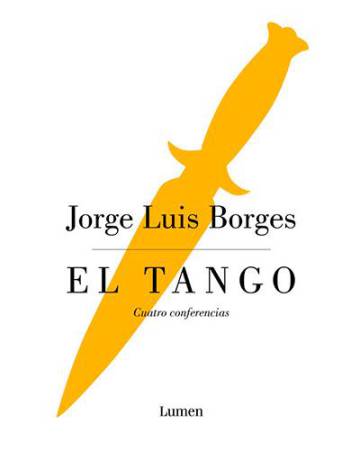« Back
The lost tango finally sees light
2016-09-22 ¦ Publications
Lumen Press has just put out an unpublished work by Jorge Luis Borges titled The Tango: Four Lectures (Lumen, 2016). The volume contains a series of lectures given by Borges in 1965, in which he spoke about the tango, his youth, Buenos Aires and Argentina. Nobody knew about these lectures until the year 2002, when Bernardo Atxaga received some old recordings from a friend. These recordings were nothing more and nothing less than the four lectures given by Borges, and now they are available to the public in this volume.

Jorge Luis Borges gave four lectures in Buenos Aires during the month of October in 1965, in which the central subject was the tango. It was believed that his words had disappeared without being recorded, until Bernardo Atxaga received in 2002 a surprising gift from a friend: recordings on which the voice of Borges himself could be heard speaking about the tango and his native Buenos Aires.
Atxaga donated the recordings to the Casa del Lector Foundation, and now, 51 years later, the words of the Argentine writer are available in book form from Lumen Press under the title The Tango: Four Lectures.
In 1929, Borges won three thousand pesos in the second edition of the Buenos Aires Literary Prize, and so he was able to dedicate himself during that year to studying the poet Evaristo Carriego, which became a deep and revealing study on the world of the tango. More than thirty years later, he brought that world, which had gone underground, back to life through his four lectures in October 1965; he gave one lecture each Monday at seven in the evening in an apartment in the Constitution neighborhood of Buenos Aires. With elegance and wit, Borges unveiled the Palermo neighborhood of days gone by, then filled with braggarts, bullies, troublemaking youth, houses of ill repute and milongas, bringing to life the origin, symbols, myths and the lyrical poetry of the music that is so iconic of the La Plata River region. Transcribed for the first time in this book, these lectures illustrate the tremendous pairing of Borges and the tango, which for him was "a symbol of happiness."
Carlos Cué wrote in El País about the history behind the book and what Borges thought about the tango and the years at the beginning of the 20th century in which this music borne of Buenos Aires took its first steps.
